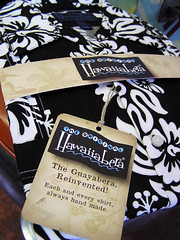Satellite Radio's Northern Exposure
JAX, Ontario
Rob MacArthur, a part-time music promoter, has a cardboard box full of nearly 60 CD's at his bar in this town half an hour east of Toronto, sent to him by independent Canadian musicians hoping for a shot at getting their songs on the radio.
For many of these artists the odds are slim, admits Mr. MacArthur, who is a guitarist in country bands himself. The music is good, but there isn't enough space on the radio for everyone, said the 43-year-old, who with his long gray hair and ready smile has the look of an aging country musician.
"It's constrictive," he said. "If you're a new artist trying to break in, you're having a hell of a time."
But those artists may be getting more exposure if satellite radio, with its hundreds of channels, is approved in Canada, as many here expect it to be early next year.
And in the process, the more than three million subscribers to XM Satellite Radio and Sirius Satellite Radio in the United States may find a slightly more Canadian flavor on the radio: more Canadian music, more Canadian news and more Canadian comedy.
That is because to win approval here, satellite radio must become a little more Canadian.
Though XM and Sirius signals reach Canada, and some Canadians furtively own receivers, the equipment is not yet legal. The hitch is a decades-old Canadian broadcasting policy meant to guarantee that the content on Canadian airwaves is sufficiently Canadian (about 35 percent for the typical music radio station) and not overwhelmed by a flood of American pop culture.
These rules remain important for Canada, said Michael Geist, a law professor at the University of Ottawa. "There needs to be cultural policy put into place that helps level the playing field and allow Canadian content to be made," he said.
Canadian Satellite Radio and Sirius Canada, the two companies pitching the service to the Canadian Radio-Television and Telecommunications Commission, Canada's version of the F.C.C., are Canadian-owned but close partners of the American satellite radio services.
Each has promised to offer five all-Canadian channels across North America (including two in French), and potentially eight if there are enough Canadian subscribers. The companies have promised various other incentives to promote Canadian talent and woo the commission, considered by many to be the guardian of Canadian culture.
"This is the first time we will be exporting channels into the U.S.," said Kevin Shea, the president of Sirius Canada, a consortium made up of Sirius Radio, Standard Radio and the Canadian Broadcasting Corporation, Canada's national public broadcaster. The company has promised to offer four CBC stations and one station produced by Standard Radio, a large privately owned Canadian broadcast company.
Over the course of the license, which typically lasts about seven years, it would also spend about $18.5 million to support Canadian talent, including money for travel to Sirius headquarters in New York for live performances and to promote tours, Mr. Shea said.
Canadian Satellite Radio, in partnership with XM Satellite Radio, plans to offer a similar mix of news and music stations, as well as a Canadian comedy channel.
It plans to create a position in Washington for an "ambassador" who would promote new Canadian acts among XM Radio programmers and arrange live shows featuring Canadian artists at XM's studios, Stewart Lyons, the company's vice president, said in a phone interview. In addition, it will build sound studios in Montreal and Toronto to help independent artists and spend $23.5 million developing Canadian talent.
There is some concern about squeezing Canadian channels into the mix, given satellite radio's limited bandwidth, which for Sirius stands at about 120 channels and for XM at about 130, officials at both Canadian companies said. But there is also a lot of confidence in the appetite for Canadian programming in the United States, they argued.
"CBC News I think could do phenomenally well in the U.S., outside of the fact that there are a lot of Canadians at various times of the year in the United States," Mr. Shea said.
"We knew that going in, the bandwidth is limited," Mr. Lyons said. "When we say we offer five channels, that's five channels that will have to give way on the XM system."
Canadian channels will not force American programming off the air; rather, the expansion is in step with efforts to carry a wide variety of programming, said Chance Patterson, XM's vice president for corporate affairs.
"There's going to be a good number who find the programming attractive, just by the sheer numbers" of subscribers, Mr. Patterson said. The comedy channel, for example, would be popular given the tradition of talent in Canada, he said.
One comedian eager to see the technology expand here is Ben Miner, who for the last year has been traveling around eastern Canada honing his standup comedy routine in small clubs and sharing motel rooms with other comedians to save money.
Satellite radio technology would help comedians reach an American audience, help develop the Canadian market and open a lot of doors, Mr. Miner said. "There are three of us in a two-bedroom hotel room with a cot off to the side," he said, when reached by phone at a hotel in Bridgewater, Nova Scotia, where he is on tour. "We've been using the Foreman grill making sandwiches. That's why I want satellite radio, so I can eat out instead of making grilled cheese."
Mr. Miner is passionate enough about the technology that he appeared in November at the radio commission's hearings, decked out in his only suit - a three-piece pinstripe - and a gold tie, gold shirt, and gold pocket square, to speak in favor of allowing satellite radio in Canada.
"We need to be able to export things aside from maple syrup," he joked.
Both services stand a good chance of winning approval, Mr. Geist said. Faced with new border-defying technologies like satellite and the Internet, the commission is having to reconsider and adapt its approach to Canadian content laws, he said.
"What we're going to see is increasingly a shift toward policy that encourages the creation of Canadian content, as opposed to policies focused on creating barriers to disseminating foreign content in Canada."
Still, the emerging gray market for satellite-radio equipment in Canada - the Canadian satellite-radio applicants estimate the current number of users here at 50,000 - may also hasten action by the commission.
Mr. MacArthur, for example, often plays satellite radio at his bar using equipment he borrows from a regular customer, a long-haul trucker. On a reporter's visit, the system was tuned to the 50's Channel on XM, and the crystal-clear sound of Peggy Lee echoed through the bar.
Some Canadian music industry groups oppose satellite radio, arguing that it still does not meet Canadian content laws; they argue that there is a risk of lost royalties with new products that allow users to record satellite radio. At the November hearing, commission members also expressed some skepticism about the proposals and the limited amount of Canadian content.
The service in Canada will be virtually identical to that offered across the United States, although the commission may order some channels disabled to meet local standards.
Sirius and XM can tailor programming to target specific markets, but in the United States they have been forced under pressure from the broadcast industry, particularly the National Association of Broadcasters, to offer all of their channels everywhere and not compete with local services, said Bob Richards, a partner with Skywaves Research, an independent satellite radio research company.
More and more channels have been turned over to local weather and traffic by both Sirius and XM, but by law are all carried nationally, instead of just the relevant markets, Mr. Richards added.
Canadian commission approval is not a sure thing. But the opportunities for most Canadian musicians to be heard are much higher with satellite radio than without, Mr. MacArthur said.
"Satellite radio is about giving Canadians a chance to get aired," he says. "We don't want satellite radio to get U.S. music here. It's already here."
Thanks to COLIN CAMPBELL


















